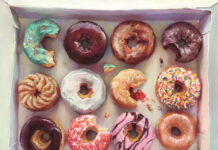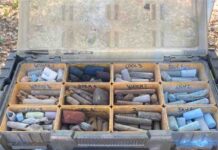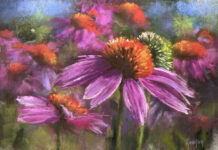Spoiler alert, today we’re talking about using charcoal…
It’s Friiiiiiday and you know what that means right?! But if you’re new here, maybe not. On Fridays I ask one of our Advisory Board members a question which currently is:
Do you have a favourite pastel hack – a clever trick or shortcut that you’ve introduced into your process?
Today we have Albert Handell to share his pastel hack which is….using charcoal.
So let’s dig into that.
Albert and I had a Facetime call on which he showed me how he uses vine charcoal in his pastel work. I took screenshots as he showed different instances of using charcoal on a pastel he was working on. I’ve included them below and hopefully, they illustrate the points Albert makes. It’s all very subtle but using charcoal can be an easy and effective way to make the small changes needed.
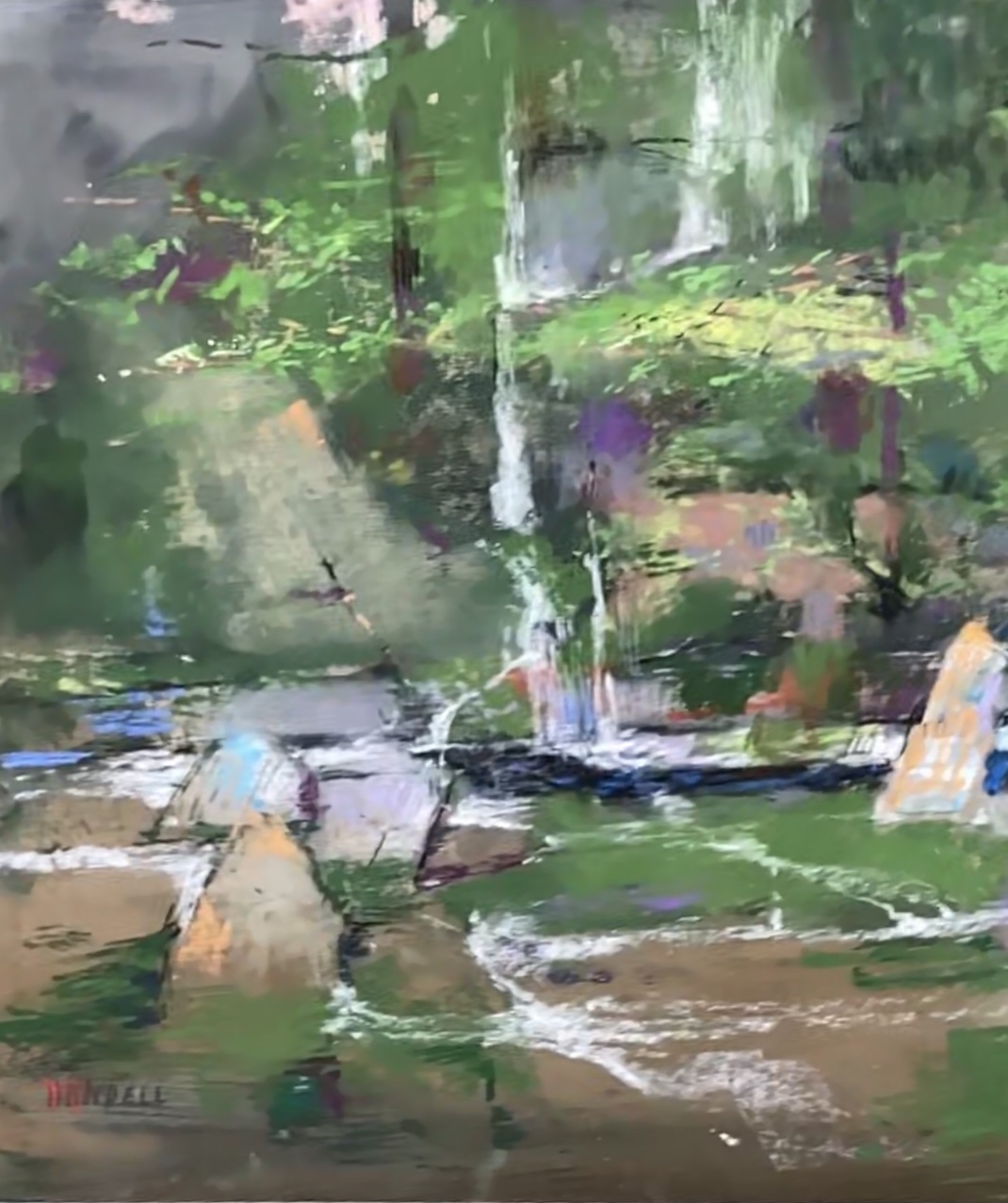
“I use vine charcoal to do a number of things – to blend, to feather, to push things back.”
The first use of charcoal that Albert showed me was to soften a bright colour, in this case, a bright white. He gently ran the charcoal over the bright white area.
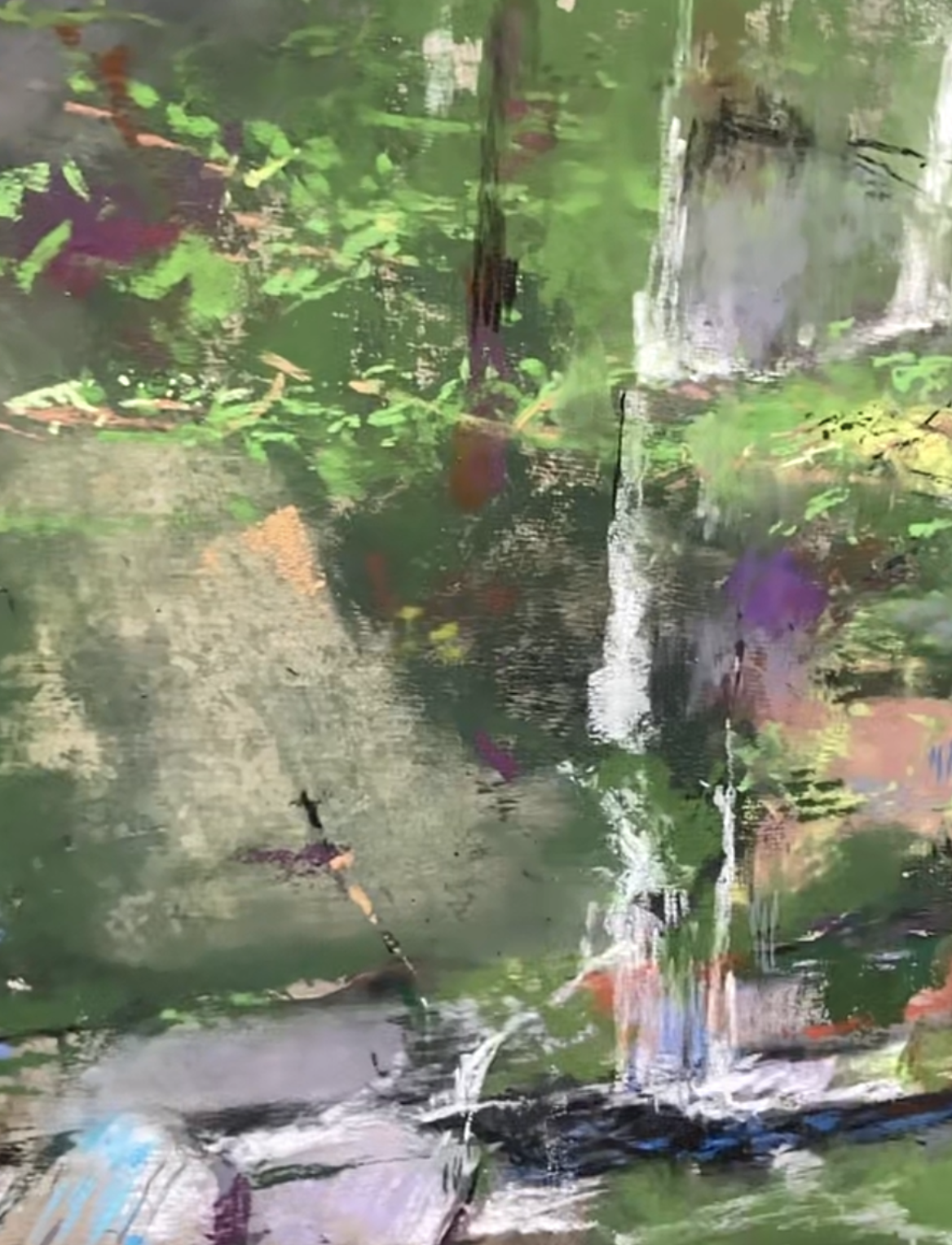
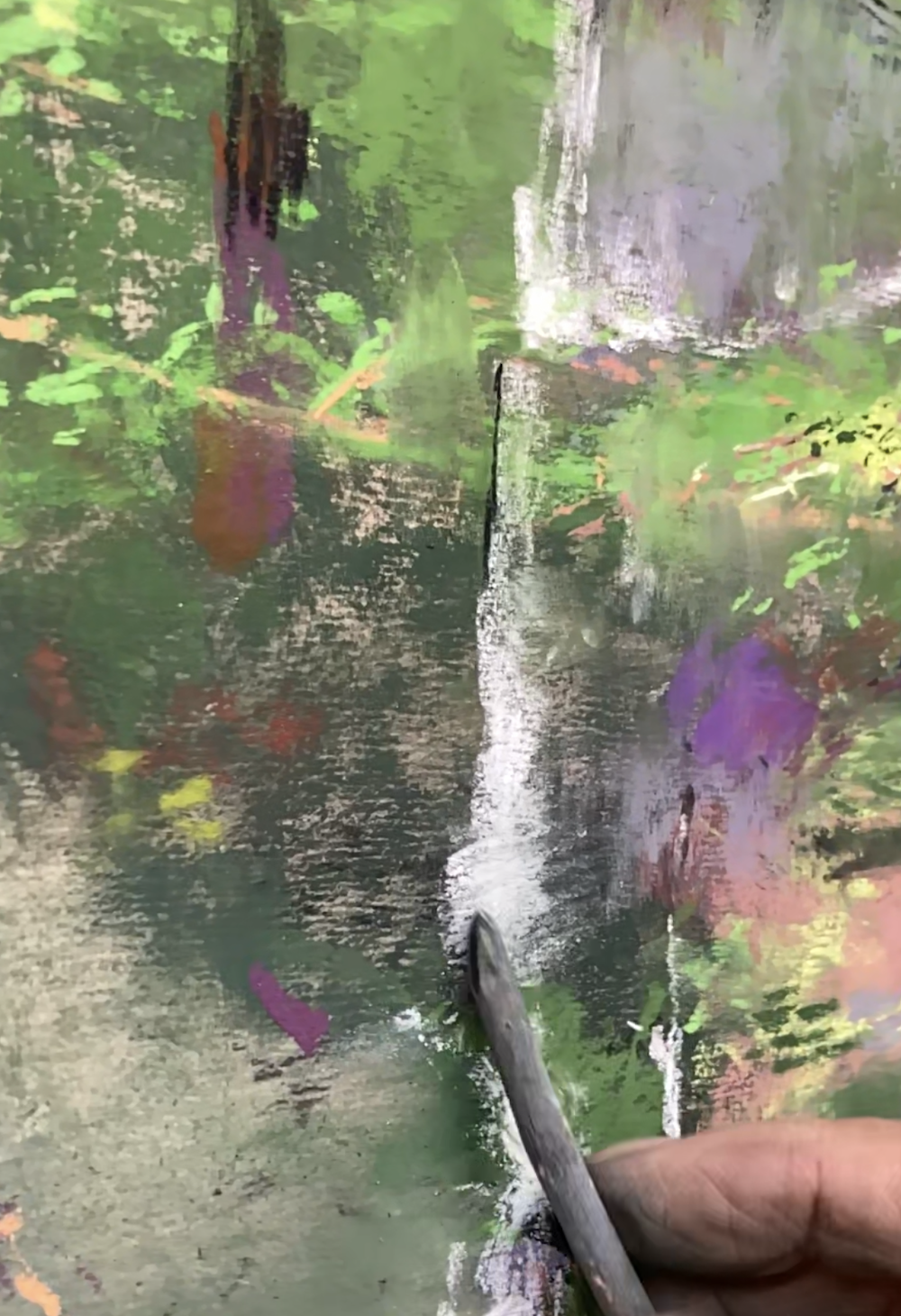
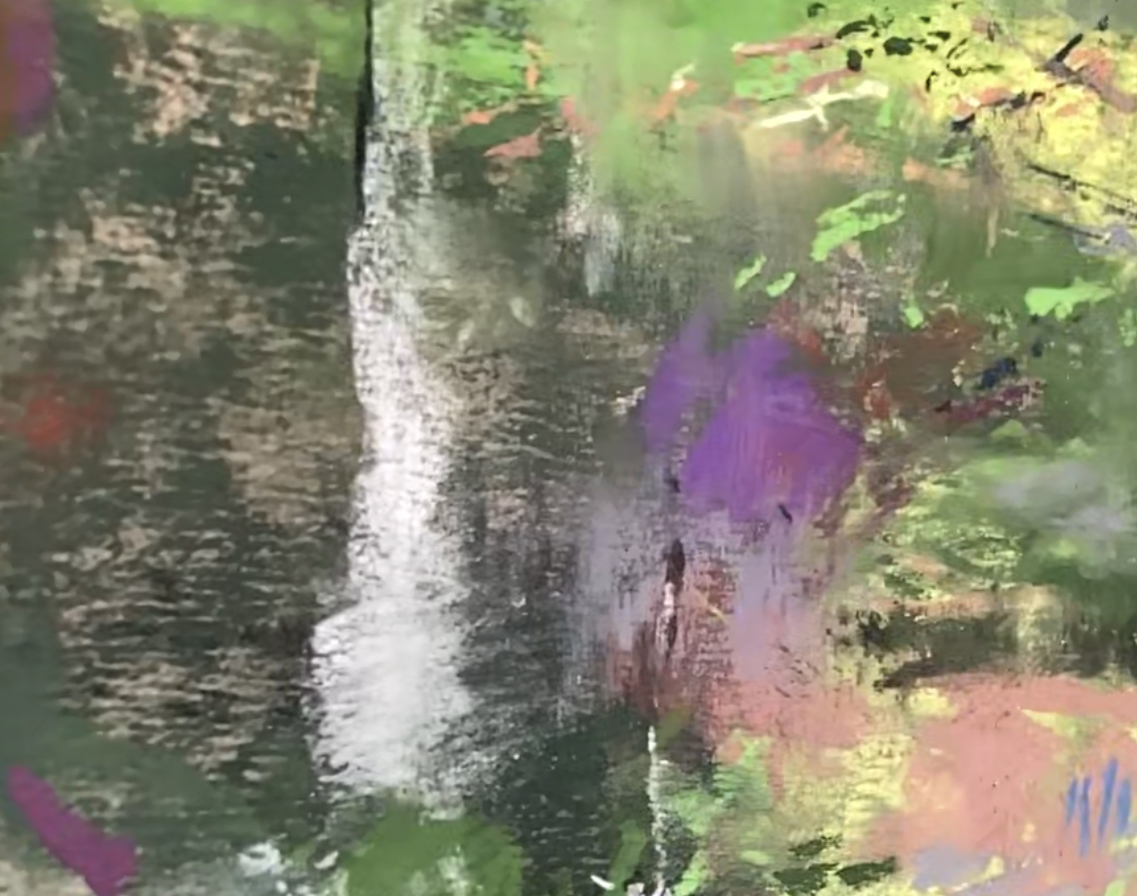
He then moved on to a section of various colours that he wanted to pull together. By hatching lightly over it all, the charcoal helped unify the area.
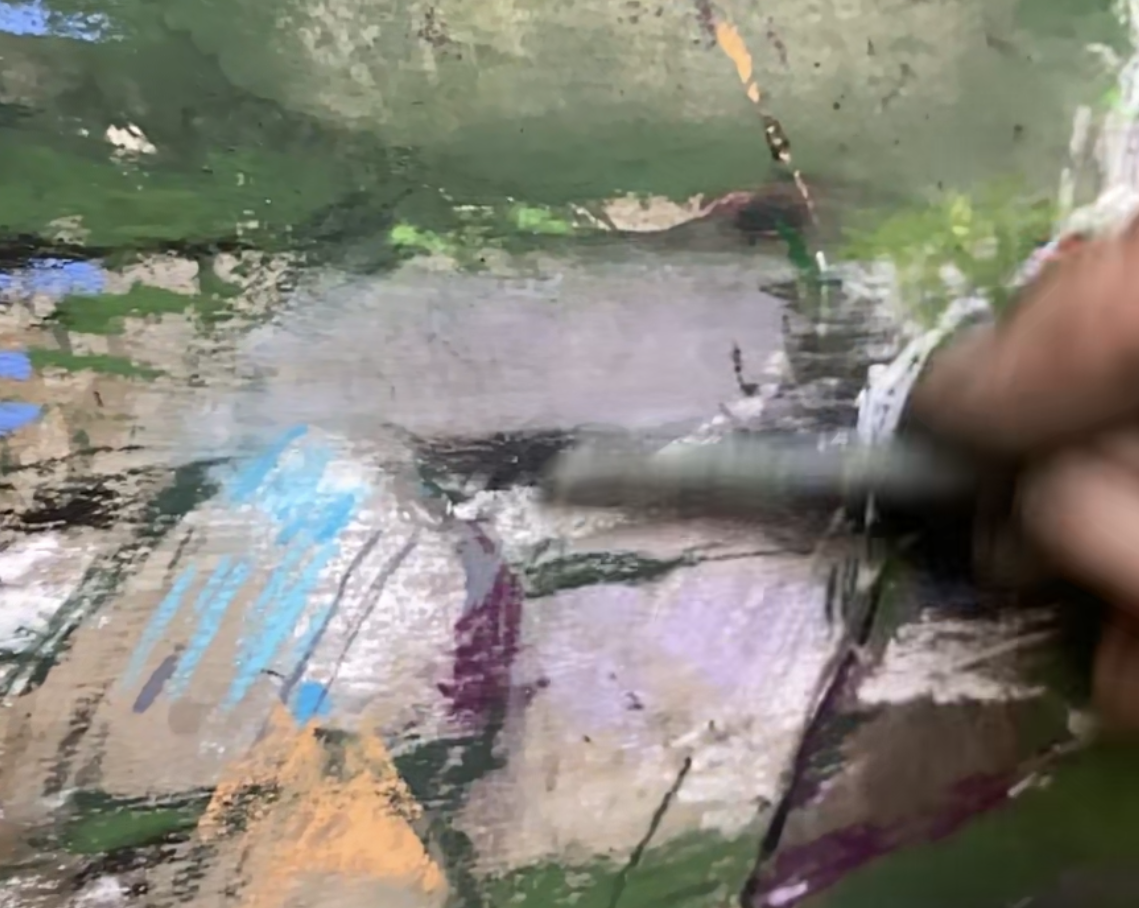
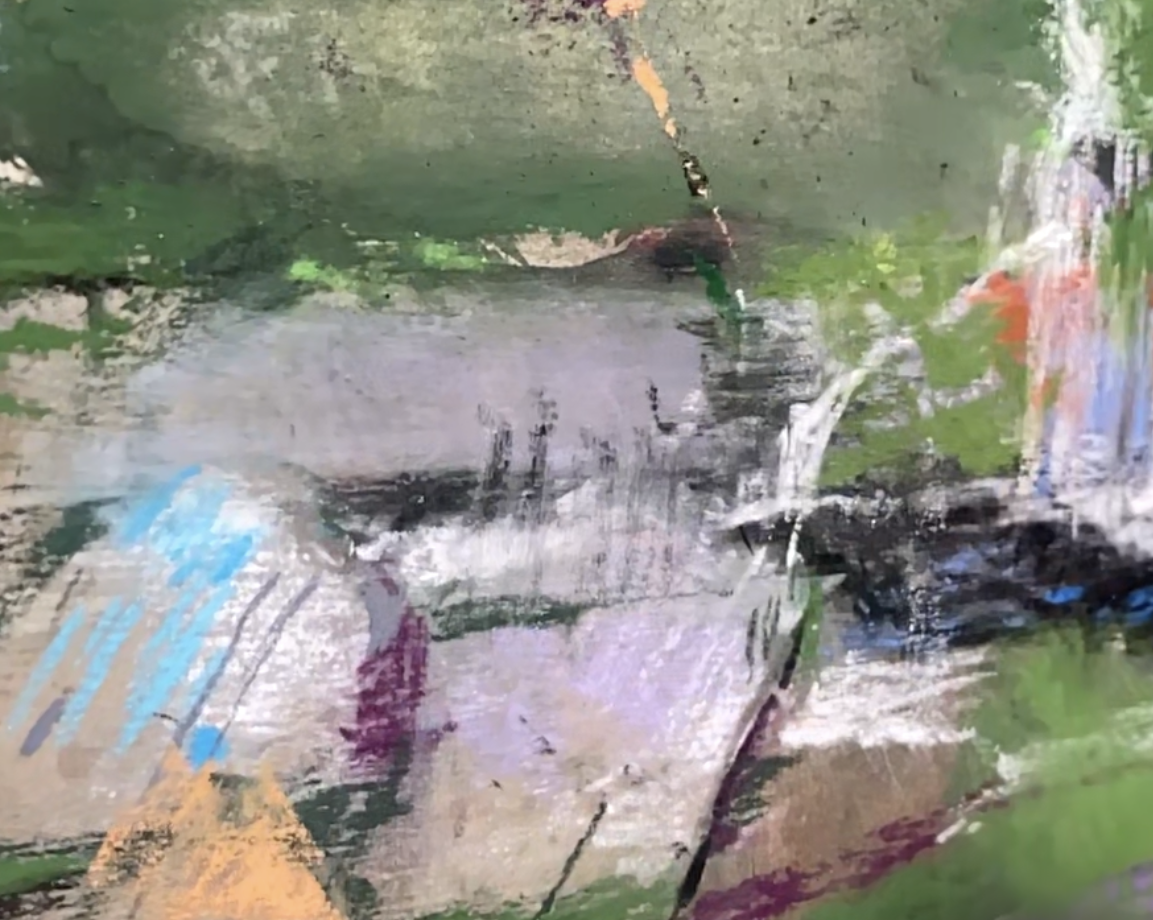
And finally, Albert used the vine charcoal as a way to make a vertical area look more upright. Greying the upright area slightly with the charcoal means it’s a less intense colour. This makes sense as it’s an area that would get less sunlight than say an upward-facing surface.
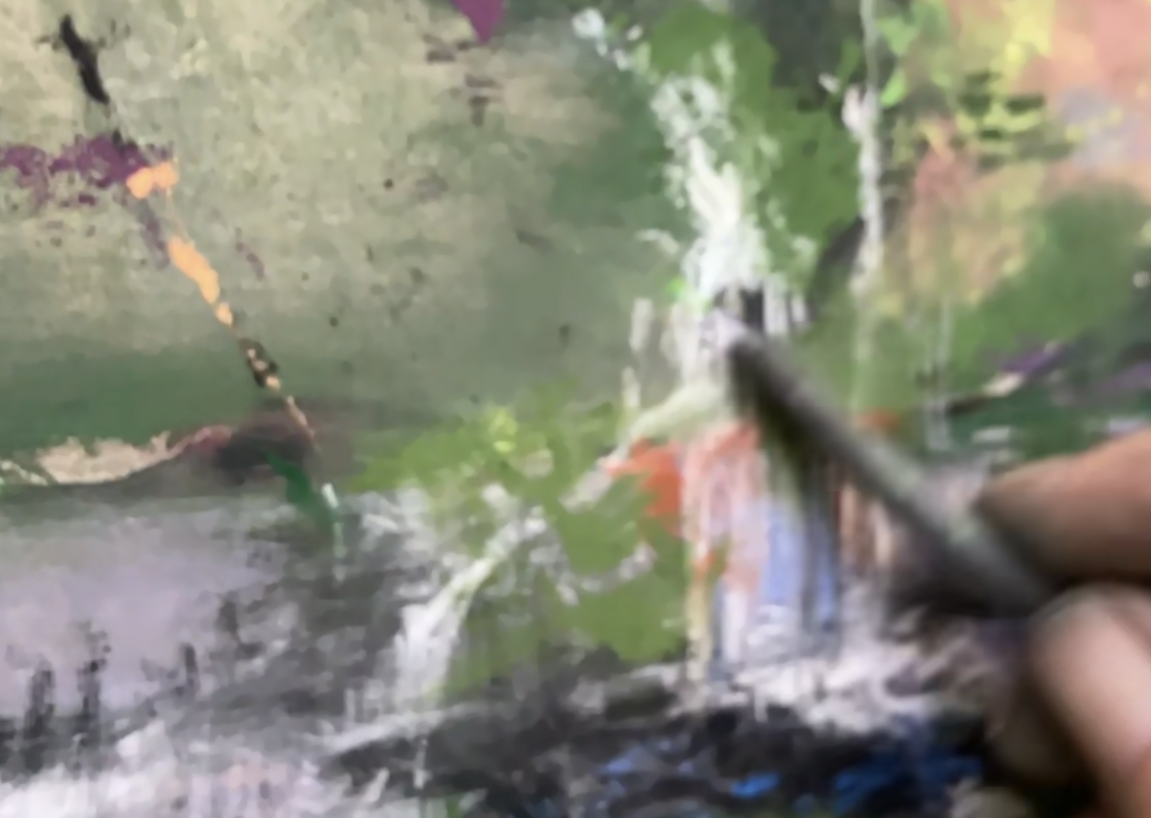
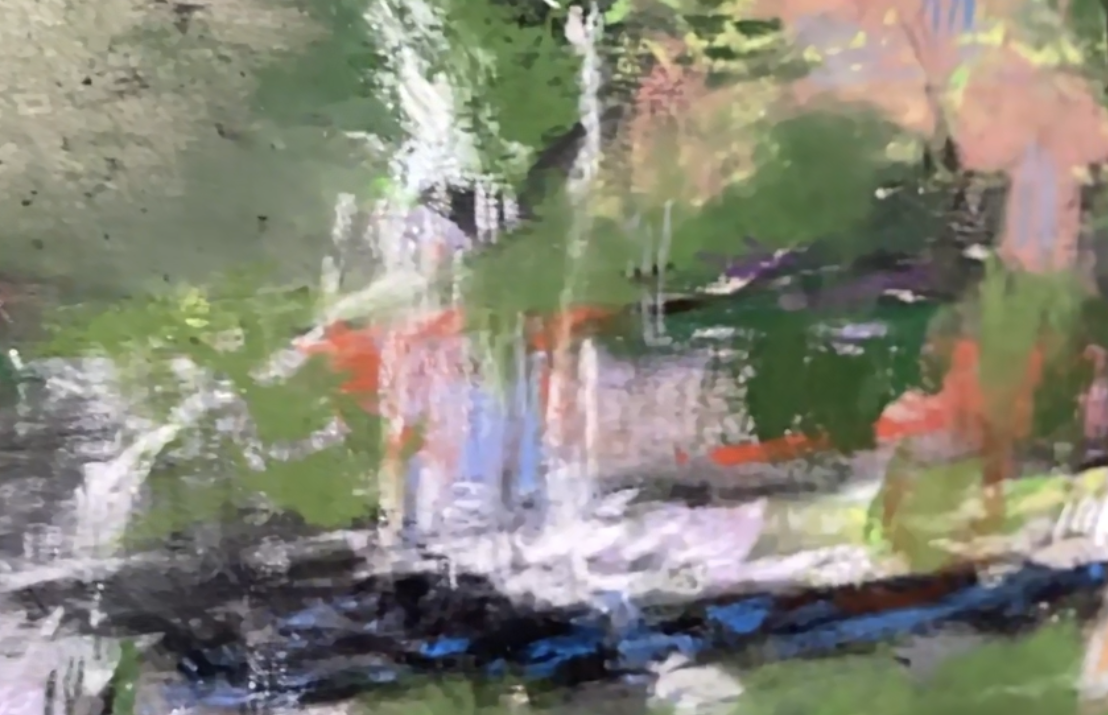
“The charcoal makes very subtle but powerful differences.”
Albert then went to work on a rock area. He moved the charcoal back and forth in the space just above the paper, “I’m getting the rhythm of the rock.”
He also wanted to break up the large surface of rock by creating a small crack in it using charcoal.
By softly applying the charcoal, Albert made small but significant changes to the piece. Even if you can’t see the changes easily, I hope you’ll take this pastel hack to heart. Using charcoal is something I’ve done but not in all the ways that Albert shared.
Thanks Albert!
________________________________________________________________________
Night Scene Wins Outstanding Pastel Award
Tatiana Roulin won the BoldBrush Outstanding Pastel Award in August for this beautiful and deceptively simple night scene of fireflies. I can just about see them blinking in and out of sight!
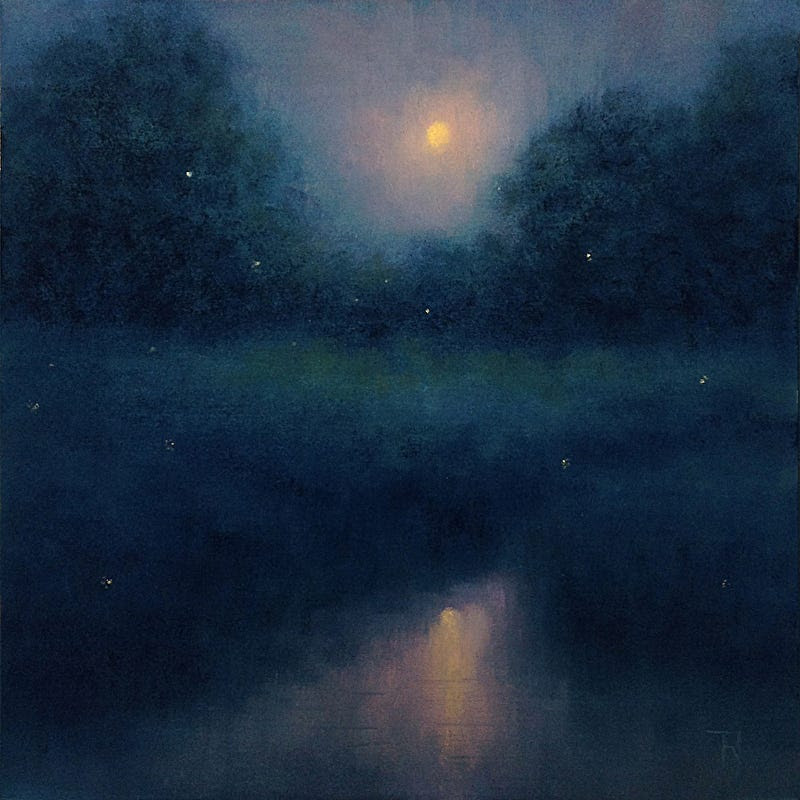
Tatiana Roulin is a Boston-based academically-trained representational painter who focuses on capturing the New England landscape. Roulin’s approach combines classic atelier training with her own personal style expressed through the harmony of design, colour and light. Her art is in many private, corporate, and public collections across the United States as well as worldwide, including many European countries, Canada, Australia, South America and China. This award-winning artist has had several one-person exhibitions and participated in many juried and invitational group shows in the USA and beyond. Her art has been published in art books including Best of Worldwide Charcoal, Pastel and Pencil Vol2 and The Richeson75 International exhibition book of Small Works Competition 2018.
And that’s it for this time!
Gail

